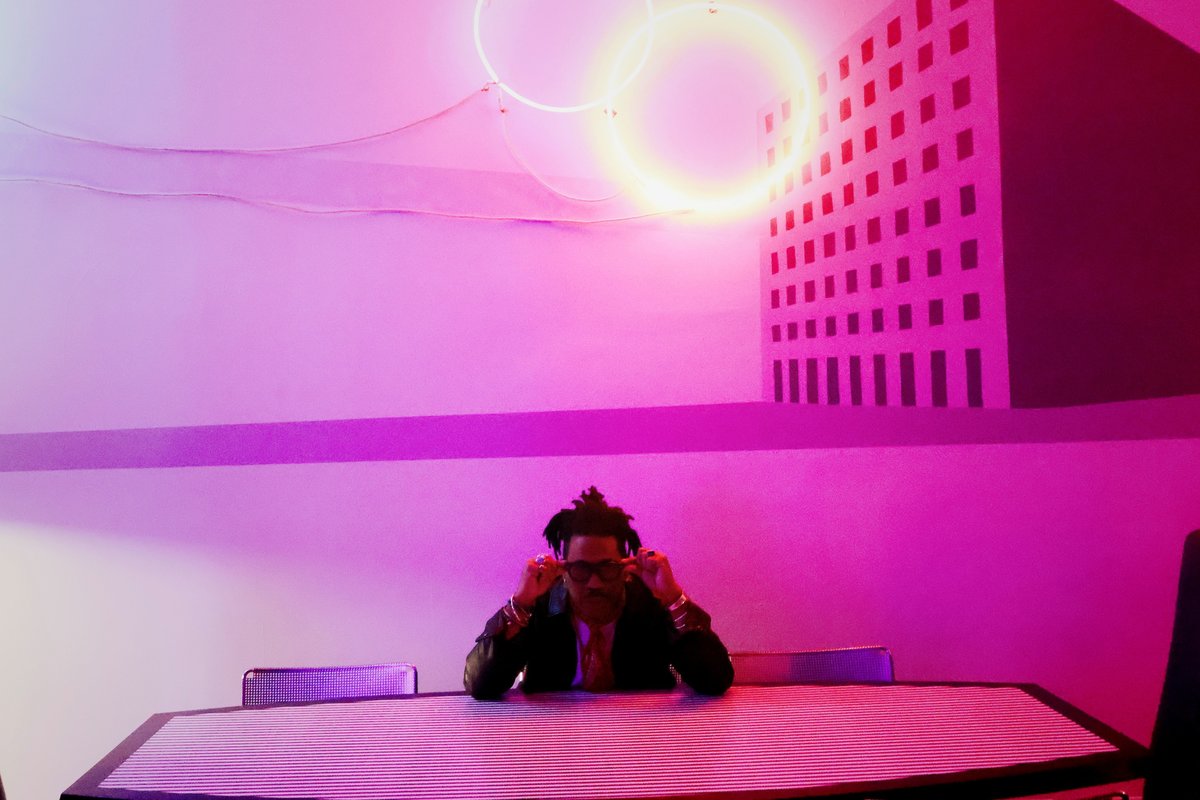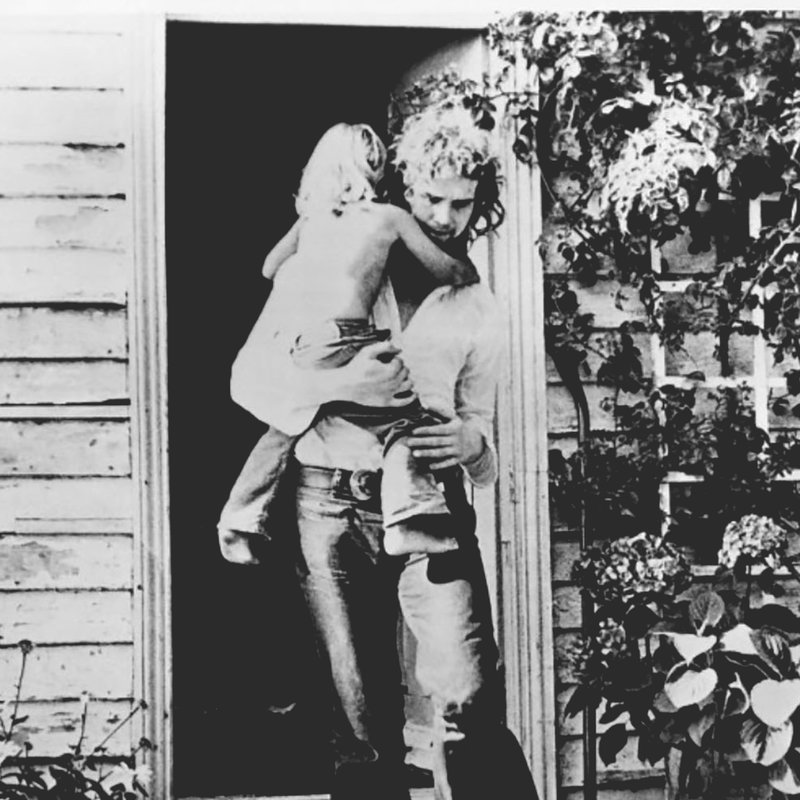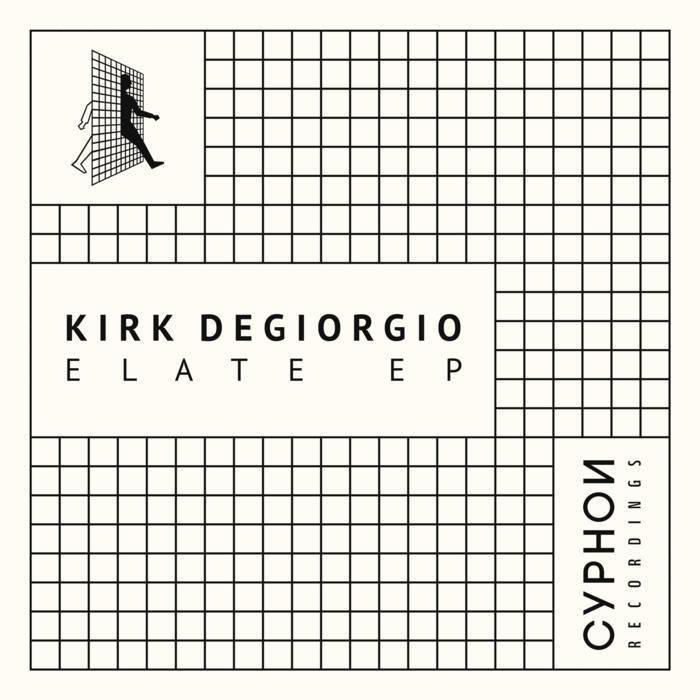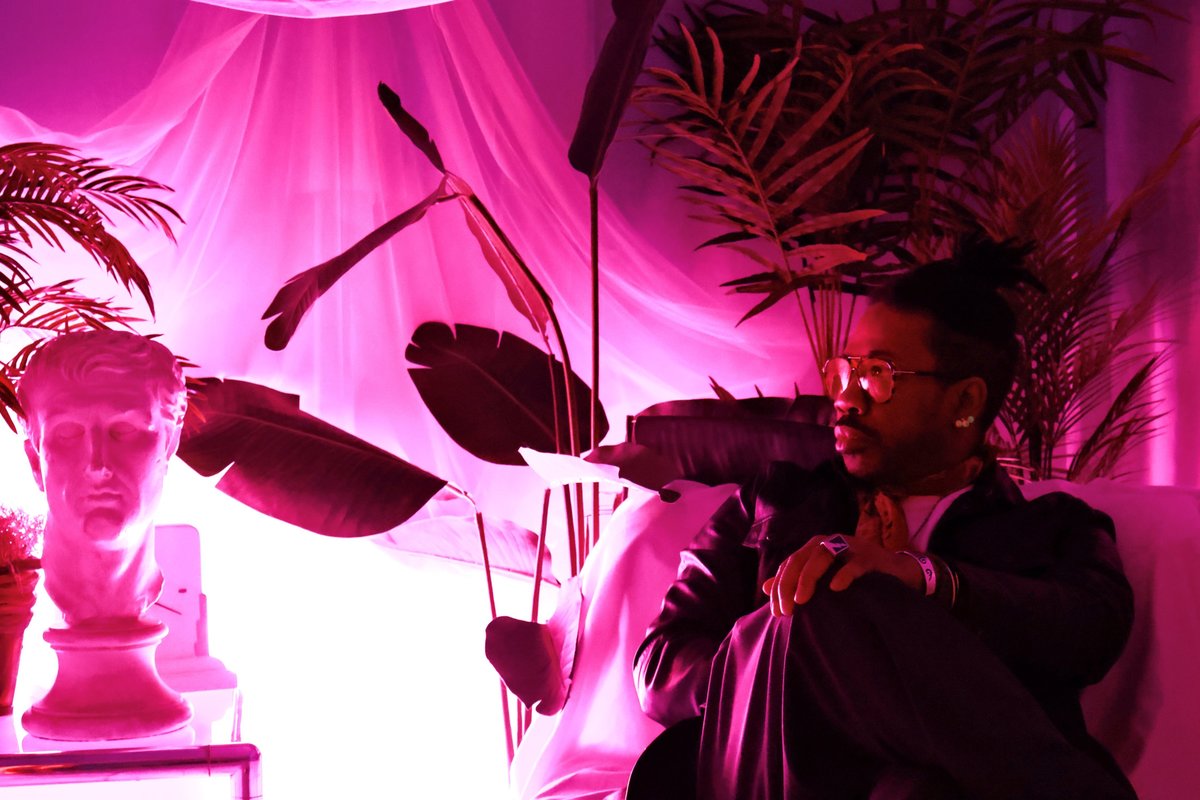
First some background. Ron Trent undisbutably sits up in the pantheon with some of the all time names of dance music. The man has been behind some of the great house records of the past 30 years+ and is not just a DJ, he’s also a consummate musician and probably one of the few remaining links from the origins of modern dance music who is still operating at the top of his game in the present day.
This interview took place as Ron gears up to promote his new album, ‘Lift Off’, a follow up to his 2022 ‘Warm’ album. Despite being jet lagged and coming off a couple of nights gigging, Ron was open, generous, funny and above all just amazingly passionate about music, past, present and future, both what he does as a musician, producer and DJ but above all, a fan.
Paul East: Okay, I think we're off. Nice to meet you. Thanks for taking time out.
Ron Trent: Let's get into it, man.
Paul East: Could we start with the new album? Can you talk a bit about the concept behind it? Is it something that you've wanted to do for a long time?
Ron Trent: This project in particular started off as part of Antal’s (from Rush Hour) compilation series. He had done one with Hunee and then Sassy J, and he originally wanted to do one with me a while ago and because we've been working together for a minute, talking about the Prescription compilation before. He wanted me to be a part of the series, so originally it was just going to be some tunes that I compiled, new and old, from my catalog along with some others.
But then, I was doing the ‘Warm’ album thing and all that kind of stuff. So, although it started off as a compilation it wound up being an album. I like themes. I like storytelling projects, so the idea was to do something that was almost like a soundtrack and told the story of growing up in the 80s, coming into the dance scene or just coming of age - like the Wonder Years!
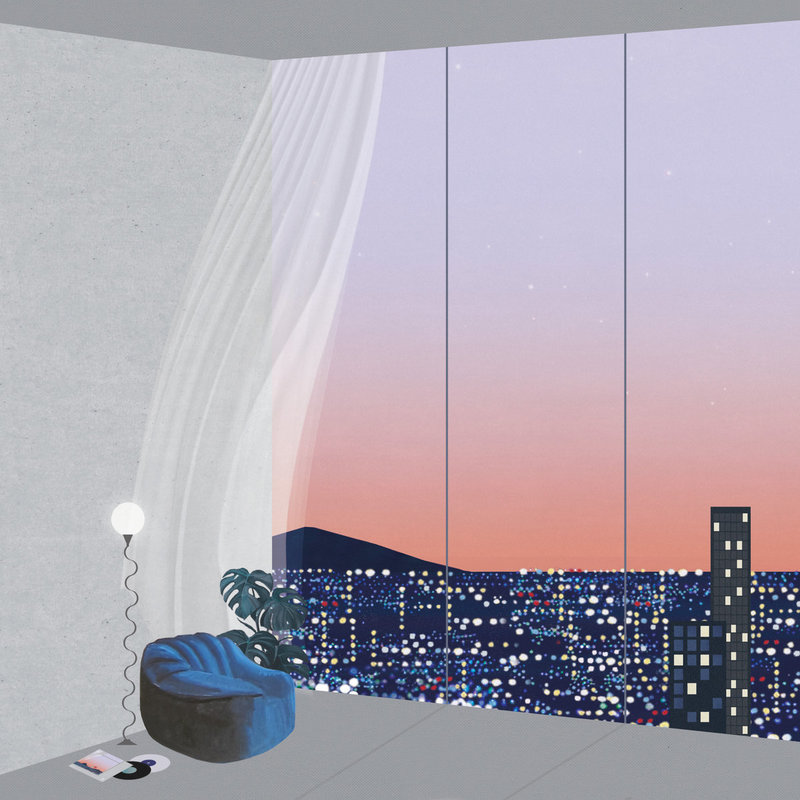
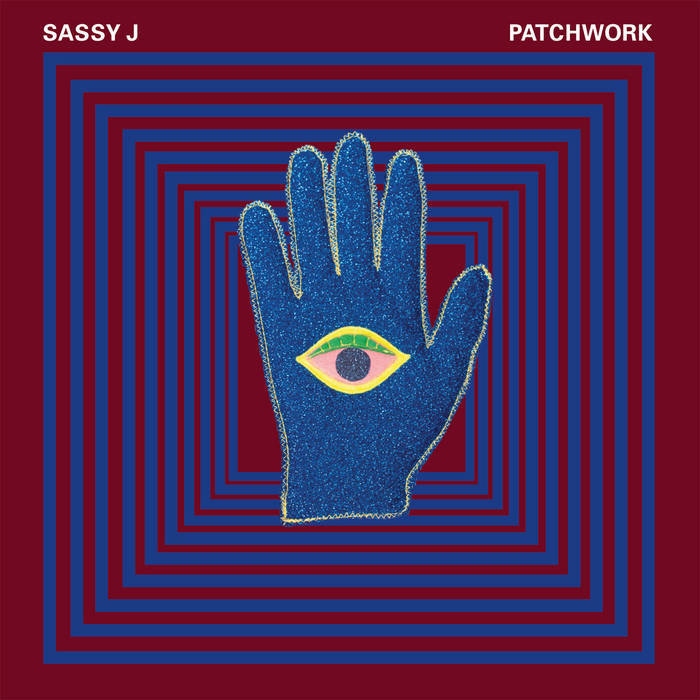
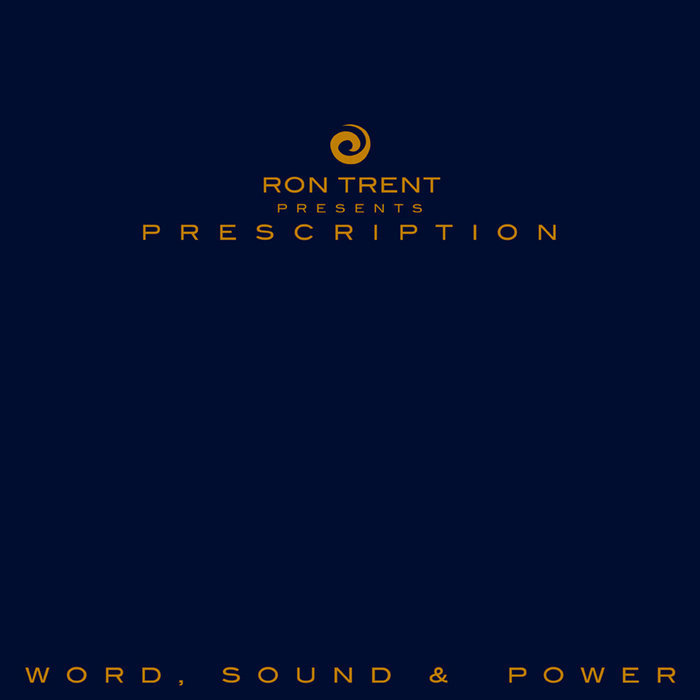



Ron Trent: I wanted to attribute those things, because there are all these different marginalized ideas about what this music is about. And at this point, I'm kind of somewhat an elder at this point, over this new generation of dance enthusiasts! So, it's a little story book really…
Paul East: That makes sense, and kind of leads onto my next question, because I read that the tracks on the album are ‘origin oriented compositions’. So, is that what you mean by that?
Ron Trent: Pretty much. I mean it's like a hedonistic kind of approach to understanding the wide scope of what made dance music/house music what it is today in a sense - an ancient to future project.
Paul East: Drawing on those influences and feeding them into the future?
Ron Trent: It's a connection. It's a bridge, to help you kind of understand some of the influences… And of course, that's something that could be very vast, if you were to do a whole thing. But, New Wave, Boogie.. What we call classics, like dance or disco or up-tempo R&B, which is what disco is. Then this formula as it goes into the 80s, which is what people are calling Boogie, but New Wave was a big influence on what we know to be house music today too.
People's concepts of what it is, is kind of fucked up to be quite honest! First of all, the term house music. It comes from a term that was coined for the warehouse, right? But it was really just an amalgamation of music that was being programmed by Frankie Knuckles and then later Ron Hardy. As well as being championed by Larry Levan, and these guys had the biggest places. And people caught on, and had their different takes on this, that and the other, but the truth of the matter is that is what it was man - it was all forms of music! You know what I'm saying?
...people caught on, and had their different takes on this, that and the other, but the truth of the matter is that is what it was man – it was all forms of music! You know what I’m saying?
Paul East: I think if you listen to those records that they were playing, year on year, you can hear how the sounds evolved. It's not like one giant leap..
Ron Trent: Yeah. those guys weren't producing like that. It's not like it is now, I mean shit! Everybody with a computer is trying their hand at it. But it’s a vast, non-genre orientated type of music - that you can dance to, or that you can listen to and that you can live with. That's what this is about. So, I'm constantly just trying to teach, or put little drops here and there and say, "Hey, check this out", leave something for the imagination. That was also the other piece too - it's imagination. People have lost a sense of imagination. I think because things are so in their face, and with AI now, they can have whatever they want.
It's very, very interesting. and I love technology. I’ve been working with computers since the 80s, you know what I mean? I'm a cool nerd(!) you know what I'm saying! So, I like all the technology stuff, but when you start making the technology starts making people lose their souls and shit - I don't know about that.
Paul East: It's a tool, something to be used to create, rather than being led by it?
Ron Trent: Humans, drums, machines. That's why I did that album before (‘Warm’).
Paul East: Do you have a context in mind for the music when you write it then? I mean, you kind of alluded to that a little bit before….
Ron Trent: I might have an influence or a muse at that moment when I'm making something, that's my own private thing and then I just create what I create. I have a creative burst and I just do a whole bunch of stuff and then I sit back and see what I have. It took time to put this together, because once again we started off one way and we ended up being somewhere else. It’s like, okay we're going to do this but now we're going to do this. We're going to go in this direction. Then, I went another way, and I had a full idea of how I could tell the story with the music. When I programme a dance floor it's a journey - it's a liftoff.
Paul East: You don't sit down and I'm going to do this first, like a process, it just comes to you?
Ron Trent: Yeah, and that’s as it should be. I don't personally want to get caught up in rigidness, you know what I mean?
Paul East: Do you feel then you need to kind of mess with people's preconceptions of you when you do something new? Do you feel like you always need to challenge yourself?
Ron Trent: I wear a lot of different hats, but being artistic is definitely one of those things. I come from a design and artistic background. Along with being involved in sculpting music I originally wanted to really pursue architecture and design. I’ve always been into artwork since I was a kid, of course with the help of my parents. So when you get something from me, you're kind of getting the full package of that and they kind of go together - music, visuals and sonics they work together so I try to give that impact.
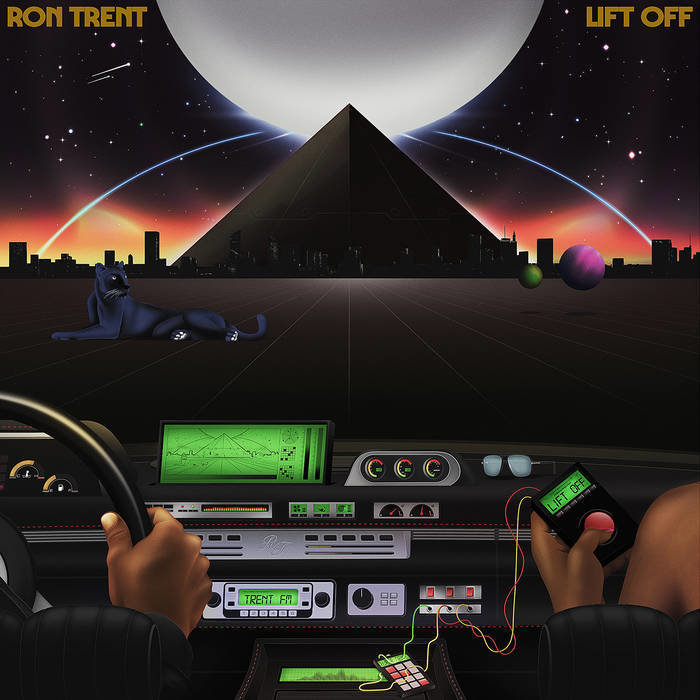
Paul East: So now It's nearly here. How are you feeling about it going out?
Ron Trent: I'm ready for that shit! It was supposed to have come out before, but they pushed the date back. They had some things that they wanted to do. Hey, it comes out on my birthday, as a matter of fact. So hey, let it happen!
Paul East: You've obviously been involved in some of the greatest house records that have ever been out. I don't think anyone will argue with that, but now looking back, how do you feel about the sounds of those records now?
Ron Trent: I study these things. I had to for this project, because it was going to be a compilation, so I had to go back and look at what I had done or what I thought might be a good reintroduction, because I thought about remastering and reintroducing some of my old pieces for the compilation we were going to do. For instance, on Hunee's compilation there was a tune called Rituals of Life that I had done (Blak Beat Niks–Ritual Of Love (Ron's Vocal Beat Down Mix)) which is a group that I started with Harold Matthews, and I was working with Braxton Holmes at the time too, but that's one of those tunes that I did when I was, shit! 18- 19 years old, and working with the Clubhouse Records crew. So, it was kind of good to hear that again. You know what I mean? Go with a fresh pair of ears. It’s nice people have taken an interest in that era of music. It's interesting to go back and listen to a younger version of myself, see the progression, what I was into… which is, kind of pretty much the same! It's just my techniques have just got different.
Ron Trent: I'm expressing myself differently, I can articulate myself in a different way. I'm not just confined to a drum machine, one keyboard and a couple of sounds that I've been able to come across… Listen, if this was your hobby or you were into this, it wasn't cheap. It weren’t cheap back then! You had to love this thing. You had to be able to go into a studio or figure that out, know what I mean? Figure out the industrial side of this, right? Because you didn't have this at your fingertips, like now. You might have been able to keep a keyboard or something, but it's not like you had a million dollar studio set up in your parents' home or in the basement. Unless you're a rich kid!
Bottom line is you had to be very creative to express yourself. It made you develop large parts of yourself. So, as a 17/ 18 year old person, trying to get his music out, that was a lot to deal with! And in a scene where you might not get paid. House music wasn't like, bringing in a million dollars in 1990 or 91, or some shit like that. It became a little bit bigger. Obviously, when it became global, but not then. For instance, that very first record, it brought me a lot of popularity, it got around the world, but older thieves took the money, that’s what happened. I wasn't as astute as I am with business now. I believe my mother signed that contract for me, that's how young I was!
Paul East: So, thinking about that, are there any memories or experiences that you had, growing up coming up through that have kind of informed what you're doing now?
Ron Trent: What family wanted you to do. They want you to be ‘the doctor’ and all these kinds of things. The safe bet, you know what I'm saying? And just coming out of an African-American home, the parents want me to be okay. Because they had to struggle, and all of a sudden you start talking about being this ‘DJ’ or this ‘artist’, playing this strange ass fucking music. It’s like ‘What the fuck are you doing?!’. Plus part of it was the fact that I was pretty good in school. I wasn’t what you'd call a delinquent. Funny enough my youngest daughter, who's now 22, was looking through some family archives and She found my honor roll papers. I was president of my class! So, I didn't really have a lot of problems in school. I was quite advanced and went to a couple of top schools and that kind of thing. By the time I was in high school and I was DJing, I was really bored with a lot of people that I was around too, because they were just slumping to me. I kind of got to a point where I was, do I really need this? Half of this shit was like, I kind of got it. so I didn't want to go to college. Unless I was going to pursue the architectural side myself, which of course, you need a degree for.
Ron Trent: But when I was in high school, I was out DJing. So, I was kind of the youngest of that second wave of guys. Frankie Knuckles and Ron Hardy being that kind of generation that kind of came in under the generation of who's another guy. The guys in my era were Pharris Thomas, Andre Hatchett, Terry Hunter, Gene Hunt. these were the names when I was around, you know what I'm saying? And I was the youngest of that group from the 80’s that was actually playing. You have a lot of guys that nowadays act like they were around but It was a very small community of people. Trust me. But you had to be willing to be that rebel. I walked to my own beat, put it like that. I would say maybe one person out of every 20 people might have been into house music when I was growing up.
Paul East: So it was niche?
Ron Trent: Very. Don't let anybody tell you otherwise. Places like the Power Plant or something like that. These are places I didn't go, because I was too young! That's the other thing. You got guys lying about that. You said what? You were eight! It's impossible! Get the fuck out of here! The Power Plant dance floor could probably fit maybe 300 people or something. Music Box maybe 500. These were small parties. It's not like a thousand people on the dance floor and it's a big sound. No, it wasn't like that. That's not what happened. You got more people going to it later, and more young people are getting turned on to this fever. Saying ‘ What is that?’ That was more, your jam packed type situations. And then there were a couple of parties that guys and girls would throw at different convention centers and hotel parties and stuff like that. This is really the strong era of some, really big fucking parties at hotels and those would be a thousand or something like that. But it was a credit to where things were at that time. We're talking about the mid 80s going into the late 80s into the 90s kind of thing.
Ron Trent: So earlier times, it was very boutique and very niche, and by the time I was in it, I was like the weird kid in my school. I did like our graduation party. Later became the high school DJ, that kind of thing. By the time, say, ‘87, ‘88, I was the strange guy, wearing strange clothes, playing strange music! Now, it's like, ‘I'm a house head." Back in the day. They used to say ‘What's up, house?’ It was like, ok to talk down to you.
Paul East: Can we talk a bit about the New Wave stuff? Because I think that might be something that will surprise a few people, the references to it on the new record.
Ron Trent: Absolutely. That's why this album's created in this way, to spark discussion. New Wave was a big part of the way we grew up. Remember, this wasn't ‘house music’ then. We took from different influences and created something, or we were inspired by something and then we did our own version of it. To be quite honest with you, if you listen to it like somebody like Jamie Principle, ‘Waiting on My Angel’ and later ‘Your Love’ and ‘Bad Boy’, Those are New Wave records, bro! That was somebody doing New Wave but basically from an urban perspective.
Ron Trent: You have Blue Monday by New Order and Depeche Mode and Erasure… I was way into all of that and most of the people that were in our culture were way into all of that. We were way into fashion, alternative music and alternative groups. Everything from Oingo Boingo to….what's my man's name? I just saw his face. It just popped in! ‘Blinded Me With Science’. I just can't think of his name right now….
Paul East: Thomas Dolby?
Ron Trent: Who I fucking loved! And quite an interesting character…..
Paul East: I guess they're rebels, they were just doing their own thing and not worried about where it goes either.
Ron Trent: Yeah, that was the Rebel soundtrack, bro. That along with punk stuff too. Clash, Siouxsie and the Banshees, Blondie, Police…When we were coming up, they were becoming popular. They were coming into their own. Obviously, videos helped that. When I started playing records in '82, as a kid, we went to go to my uncle's house out in New Jersey, and I have a cousin who's actually famous drummer, but at that time he was into I guess you’d call it heavy metal,…and this guy my god, he had a drum set the size of this room that I'm in right now. This dude was, he had drums all over fucking place! But we went to his house and he had cable, And this is the beginning of MTV, so English Beat and all that stuff.
Ron Trent: But various different groups and strange things were being played on TV and videos obviously added to your imagination. It was conceptual. What does it have to do with the record? It made you get more involved and try to do more research on whatever it was. Some of the music, it's like what is he talking about? What was he going through? That's kind of like how it was for record collecting too and albums. You looked at the back of the album. You wanted to be involved. That's versus now, we're in this dimension of everything is kind of sterile in a sense.
Paul East: It's all compartmentalized, all in boxes?
Ron Trent: Yeah. Yeah. And I mean we love technology, but with a younger audience who hasn't been exposed to certain things it kind of deadens the senses.
Paul East: I think it's harder to get that sort of organic connection between things now. Where, like you say, reading album covers, seeing who produced it, who played on it, and then finding another one like that. It's very different now, isn't it?
Ron Trent: Absolutely, the idea of somebody like a Prince that comes along, You get his album cover, what the fuck is going on?! This Dude's on a horse, He's got this hair. Is he a man? What is he into? Then you find out this guy played everything on the album. He played everything! Guitar, drum…. Damn!
Paul East: And he's directing the videos. He's making the movies……
Ron Trent: It’s like this guy is, wow! You know what I'm saying? It's the excitement of that, same thing with Michael Jackson. His history, but then he transforms and creates this other whole persona. The ‘Off the Wall' album came out, and we studied that, listened to that because that was a badass album, right? And you dance to that. But then, by the time he does Thriller, that just took it to the next level, new sound, everything, him and Quincy. …It's about creating the intrigue, the interest, which I think is something that gets lost with people. So that's the energy of some of this, what I’m trying to do.
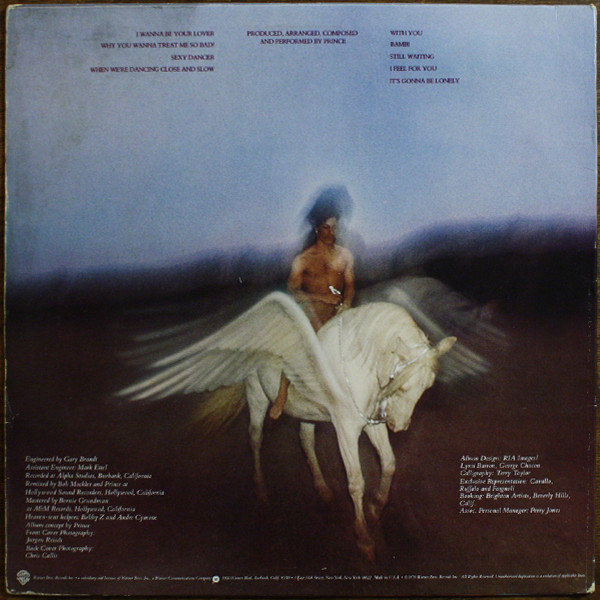
Paul East: Can we talk a bit about some of the vocalists on the album? I think you said you've got certain singers in mind when you write.
Ron Trent: It depends. I mean, certain things don't need vocals because they're meant to be more for headspace or moods, you know what I'm saying? So, the tune that Leroy Burgess is on, when I was creating it, I was just creating a track and then I said, "I kind of hear Leroy on this". And Leroy and I had done a tune before, ’Tell me I'm not in Love’. Which I had put out that he loved, and I loved, and so Antal and I were talking about it, and was like - ‘Get Leroy on it!’.
So I put Leroy in the jam. He heard it and he was like, "Yeah, send it back to me”, because when Leroy does his vocals, he sends you a lot! He does a lot of layering, because he's doing it all himself. So it's like, "Okay, put that in, mix it down. There we go!". Everything else, I'm the vocalist on all those other songs. Sounded like somebody else, but it's me, man…
Paul East: Are there any other singers that you'd like to work with in the future?
Ron Trent: Some of the people I want to work with are not here anymore. Just put it like that.
Paul East: How about any you wish you could have worked with then?
Ron Trent: I mean it's some of the classics that I like, Chantal Curtis and Brandy Wells. Who else? I would love to get and she's still here - our big elder, Jocelyn Brown. I would love to work with her. Lisa Fisher is one of my favorite vocalists of all. Super bad. Of course I would have loved to work with Luther Vandross if he was around. On the alternative side, some of my heroes, Blondie of course, some people of that ilk. I would love to work with Bjork. That's my world. That's my kind of thing. Most of us, music guys, we're not sitting around just listening to house. This just doesn't happen. When I'm at home, I don't even really listen to any dance music at all.
Paul East: So what's on the home playlist at the moment?
Ron Trent: It really depends, but a lot of mood music, stuff from my personal archive. Music from Memory it's a great label, with some great stuff on it. Nowadays, I listen to a lot more ambient music too, so it's a really varied kind of thing. Tangerine Dream, I listen to a lot of Ash Ra Tempel, John Hassel kind of stuff. These are things that I've been into for a long time.
Paul East: Do you find the time to just sit and listen any more?
Ron Trent: In the last couple years I was traveling around a lot. All over the place, we went literally around the world, so I haven't been able to be at home as much as I would like. In my basement…but I bought some Klipschorns for my listening room. I have my own setup, which is pretty nice, and I'm going to fully build that out in my basement, but I haven't been able to chill. I need that actually, to enrich myself to be quiet, source some inspiration, and sit back. I haven't been able to do that as much as I'd like to. I'm Moving around. Just got to keep the inspiration going in other ways.
Paul East: Can we talk a bit about ‘disco’? I mean, you say that word to people and you get a huge range of responses. What does it mean to you?
Ron Trent: People will relate to things based on how they were introduced to it. You know what I'm saying? But disco really is just uptempo R&B. That's what it is. And of course, just with anything else, even with house music when it becomes formulaic, then it’s into these different marginalized names. Like with house; it's Afro house, this kind of house…We have house with mustard on it! So for me, when you talk about uptempo R&B, that’s disco. That's what made up the Loft sound and that really is the blueprint for what we do today. It’s made up of a lot of different things, jazz, gospel… but it was always soulful. Now, by the time it got to ‘Disco Duck’, it's commercialized, it's packaged, it's for the kids.
But it was more of a fanatical, hedonistic, dancing kind of thing at the beginning. For African-Americans, it was tribal in a sense. You know what I'm saying? It was a part of being able to get together, dance, and have a good time. People need that. As we can see, you need to let that pressure off. So it was a part of that, to let it go.
Paul East: It's like escapist music, isn't it?
Ron Trent: Obviously, of course there's stuff that went along with that too. Drugs and things of that nature. Drugs have always been there in some form or fashion, recreational or medicinal, right? But the disco era, and I was a disco kid. In fact my father was actually DJing at that time and a record pool director. So I grew up in that culture, you know what I mean?
My father would actually go to different spots and drop off records to different guys to try in the clubs. It was him and Donald St. James, they were buddies since college. They started the record pool. So it was them and Dogs of War, that was the other one. I grew up around that kind of thing. I don't know. it was just a part of my life.
Paul East: It doesn’t sound like you really had much choice about becoming a DJ, when you're growing up in that environment. It was kind of inevitable.
Ron Trent: I was exposed to it, but back then, my father wasn't mixing or anything like that. Maybe he did mix a little bit or something, but it was selective. It's one, two, and then the next one. So I got turned on to mixing much later, by an older cousin, Anton, who passed away. He was maybe four or five years older than me and his crew of guys. They started DJing and I was more interested in being a musician. Come ‘78/’79, I wanted to continue to play drums. I grew up being in a band, that's where my head was at. But I got turned on to actually being able to match records together and beat match them later. I knew a lot about music because of being around my father. And my mother too, she was also an avid record collector so I knew a lot about music…
Putting two records together, that's interesting because I was interested in the beat match, like being able to blend them together. I had a sense of tempo playing drums, so it was ‘here comes the scientific mind’, how could I do this. Then I saw that, mixed along with what the music makes you feel. It was that kind of curiosity. I learned more about the feelings of being able to make the music do things later. That's something you develop over a period of time. It's not like you go in that way. That wasn't the point. The era before me, that was their entry point. It’s being able to make people feel things first. That's what they were trying to do.
Nicky Siano, David, Larry, Frankie Knuckles, they come from the school of ‘Let me express myself through this music’. Let me tell you a story, literally sentences with songs, which made it even more interesting.
Ron Trent: So, after knowing these people and studying that, the style was to make you feel something or tell you a story. Younger generation was the technical side, beat matching, Nicky Siano, David, Larry, Frankie Knuckles, they come from the school of ‘Let me express myself through this music’. Let me tell you a story, literally sentences with songs, which made it even more interesting. The theatricality, that was the power, and once I learned about that I was like, ‘Wow! Yeah!’. But to answer your question, disco was just all a part of that whole essence, instead of some formulaic goofy shit that people were doing later.
Paul East: This is a really horrible, or dumb question: but I'm just going to ask it anyway! Is there one record from that kind of era that you always go back to?
Ron Trent: It's too vast. It's too much! Fuck! What reminds me of disco? I'll just say just because the brother he touched us in such a way, very powerful, Roy Ayers - ‘Running Away’. That's the quintessential disco record for what we would call disco. And that's a jazz funk record really! Jazz funk was mixing disco with jazz and funk. That would be a soulful disco record that probably was a quintessential staple in a lot of people's collection. So I'll say that.
Paul East: Let's go with that. I'm happy with that. So you did go to the Loft and you were a regular there?
Ron Trent: No, no,… I mean by when the loft was going strong.I was in Chicago. So, my Loft and David Mancuso, all that stuff came when I moved to New York and that was later in the 90s. And then Dave and I, we became cool outside the Loft. We became friends, not like, "Hey man, I'm coming over for a peanut butter and jelly sandwich." Not like that, but friends like we'd sit and talk on the phone for periods of time and exchange information or see each other, from time to time. I met him outside of his realm of DJing, we became cohorts more or less. He was slated to play with me when I was doing Giant Steps and then 911 happened. That's what happened, and then the rest is history. We just stayed, friends, I‘d call him and talk to him about stuff or ask him questions or just check in. ‘Hey man, how are you doing?’. I really believe in eldership and respecting the people that come before me.
But, when I was in New York, I was more into Shelter/Body and Soul. and I had my own party going on. So that took up a lot of my time. But Saturday into Sunday, I was busy with my baby powder! And then, by the time the week came around, I was also doing A&R and production for Giant Steps. So I was in the studio, I was busy and I had my labels and DJing…there wasn't a lot of downtime. You got to pay them bills, which means you got to stay on top of your work and your business or you don't eat. But I was doing ok before 911 happened.
Paul East: It changed everything?
Ron Trent: Yeah. for sure, that's another whole conversation….
Paul East: Do you still go out dancing? Is that ever a thing for you anymore?
Ron Trent: Man, I really wish that I could, to be quite honest with you. It's just that places are not there to dance on my level where I like it. Sound systems are not adequate. I wish I could go dancing. I really do. It's funny enough. I was telling my lady, I can even feel it in my body, because I'm used to doing certain things with my body, and then you stop using it and start feeling it. I'm used to that level of muscle memory but I need that sprung dance floor.
We don't have the spaces to do it. Going to dance in a cold room and on concrete floors and listen to a bad sound system is not the level. I need that wood floor, bro! Everybody does really, because concrete, that's another whole scientific conversation, but concrete drains energy from the body and then you mix that with a depressant, which is alcohol. What happens? People get tired,…get more aggressive. It's the science of biology.
Paul East: Can we talk a bit more about some of your other influences, I also read you wanted to work with Wally Badarou?
Ron Trent: Wally was supposed to be on Hot Ice. I just named it Hot Ice, but I had created that for the ‘Warm’ LP. Originally, like I said, this was going to be a compilation album. But what happened was sadly his wife passed while we were getting ready. I had sent him the parts, and he really liked the track. The fact he said that, for me, was an honor to know that some of these people that inspired me really liked my interpretation of their style, it's just like a respect thing. He was 79 when I sent it to him and he was just taking his time on it, being very particular about what he would or wouldn’t play on. But he heard the jam I did and when we got in contact he said ‘You must really have studied my style’, and of course, I’m fanboying, I'm like ‘Shit!’
Paul East: I love that Compass Point stuff.
Ron Trent: I dig that all day. Island Records, that whole sound, Compass Point, such a combination, Wally Badaro, Robbie, Sly...
Paul East: Adrien Belew….
Ron Trent: Yeah, just the whole crew, you know what I mean? It's a cross amalgamation of interesting stuff, because you have Trevor Horn. That whole sound has that ethereal, otherworldly, yet rhythmic feel. Wally was playing more with Caribbean sounds, stuff like that because of his background and he mixes that along with his keyboard sounds. So you get this really interesting world, and then Island Records has the connection to the likes of say Bob Marley and it's all kind of mixing together. Urban with Caribbean and spirituality. It's just dope. I'm still trying to figure out all the words to describe that stuff. You know what I mean?
Paul East: What about what’s coming next? Are you going to get a band together for this release?
Ron Trent: I had the band for the last album because that was actually created for a band. We did a lot of performances last year. We had a couple of dates that we had to fulfill. And I think by the second show, we kind of had that shit together. For this, I don't know. We'll see. Either it’ll be me doing something like that or producing a band. Who knows.
Paul East: I see you're playing with L’il Louis and DJ Deep at Rex Club in May. What can people expect from that?
Ron Trent: That’s part of their legends series. Sometimes I don't know how to feel about the whole legend thing, it gets used all the time. When I hear legend, I always think about old western movies, I don't know. I don't really have any expectations of the situation. Deep is an old friend of mine. I’ve known Louis for a very long time. Louis and I were pretty tight at one point in time so it's part of participating - sharing is caring!
Paul East: That sounds like a really good place to end it.
Ron Trent: Hey man once again, thank you for taking interest and taking the time.
And that was that. Huge, huge thanks to Ron for his time, his honesty and openness in talking to us for this interview and those involved in making it happen.
Lift Off is released on 23 May via Rush Hour as parts one and two, and is available on Bandcamp.
Ron Trent plays the Rex Club in Paris with DJ Deep and L’il Louis on 18 May.
